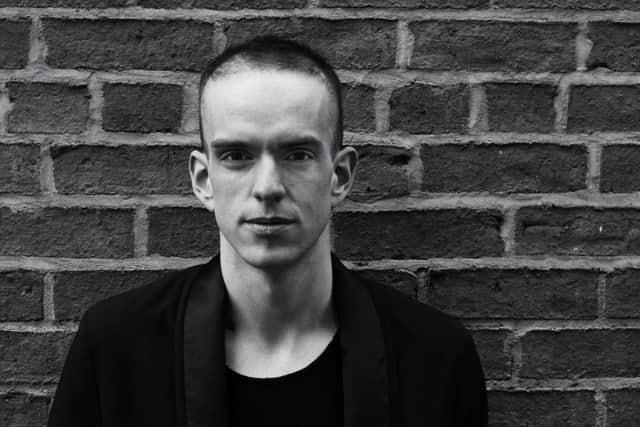StAnza gets physical as poets aim to move body as well as soul


From Andrew Marvell addressing his mistress to Sylvia Plath looking in the mirror, some of the most memorable poems in literature are those which engage with the body. In fact, the poetry of the physical can be a place which showcases what poetry does best: big ideas, rooted in the real world; the familiar, revealed in a new way – mysterious, unexpected, profound.
That’s one reason why Eleanor Livingstone, director of the StAnza Poetry Festival in St Andrews, Scotland’s leading celebration of the art form, has chosen Body of Poetry as one of this year’s themes. The theme will be the subject of a lecture on Thursday, a breakfast discussion on Saturday, and will feature in some of the other events and readings throughout the festival. “What are bodies?” she says. “They are the physical entity which holds the abstract, just as books hold poems. I liked the way ‘Body of Poetry’ had a double meaning – poetry about the body, and also that we create a body of work. I was interested in the chance to explore how physical bodies offer a topic for poetry but also metaphors, and how different poets approach this differently.”
Advertisement
Hide AdOne who has made it his business to address this theme is Andrew McMillan, hailed as a major new talent after this first poetry collection, Physical, won the Fenton Aldeburgh Prize and the Guardian First Book Award. McMillan, who was 26 when the book was published, has created a “body of work” which addresses the body very directly. “There is a very British thing, that Victorian sensibility of ‘Let’s look away, let’s cover the legs of the piano lest we get excited’,” he says “The thing I never liked in poetry was when the curtains were drawn across the screen, when the poem looked away. I was writing poems about the body, and the more I wrote, the more I thought the way to do this is to do it unflinchingly.”


McMillan says he was influenced by the physicality in the work of American poets such as Sharon Olds and Mark Doty, as well as the writing of plain-speaking fellow Yorkshireman, Geoff Hattersley. “I think the people who have liked the book have liked the straightforwardness, honesty, the looking at the body unromantically. A lot of the poems are just very everyday stories of mundane encounters, and I think people recognised something of themselves and thought: ‘Maybe my body or my life is worthy of poetry as well’.”
As a gay man, he was aware of the weight of poetry down the centuries written by men about women. “And often writing about them as sexual objects to be desired or to be pursued and caught,” he says. “One of the things I was interested in doing in this book was to look at men with that same gaze, to turn the camera round and say: what would happen if that was a man looking at another man? That doesn’t necessarily have to be a sexual thing. In one poem I write about heterosexual men in the gym, how they want to improve how they look and get validation from other men. Once you turn that look on other men, you realise how fragile masculinity is, how fragile men’s bodies are.”
Clare Best is another poet who subverts expectations in her writing about the physical, but for a very different set of reasons. In her pamphlet, Breastless, and in her first full poetry collection, Excisions, she has written unflinchingly about her experience of an elective double mastectomy, after discovering she had a high risk of developing breast cancer.
She kept a journal through her experience, but says the poems came afterwards, the most direct of them tapping into “a white-hot place of pain”. “It was almost like the journal had supplied me with a way of dealing with what was in my head, but the body-self had to come to terms with things through poetry. I was making a body of work which was about, in some sense, regaining control.”


As what began as a way of coping became an artistic project, she says she became aware that she was making public something which had been very secret in her family. “It was always very taboo. When my cousin developed breast cancer, she had no idea my mother had had it. No one talked about it. It felt like I was saying something which came not just from me but from my family of women. In some cases people have said they find [the poems] very strong and quite shocking. I suppose there must be something in me that needed to say: ‘look here’. I remember my mother’s enormous shame about her body post-mastectomy, and I wanted to say: ‘I have scars, we have this in our family, we all have scars’. There is a real political, femininst aspect to it.”
Advertisement
Hide AdIn particular, she found herself engaging with deep-rooted ideas about body image in her decision not to have breast reconstruction after surgery. “I think what I was taking on was the obligation, post-mastectonomy, to return to some sort of recognisable female shape. Once a woman has had a reconstruction and her clothes are back on, everything that has happened is invisible. My thinking was more about opening up the idea that this is not something that needs to be an obligation, that one is somehow imperfect [without breasts], there is an alternative.”
The StAnza Lecture on Thursday on the Body of Poetry theme will be given by a writer who knows the stuff of the body in a very different way. Thomas Lynch has combined a highly acclaimed career as a poet with working for 40 years as an undertaker in his home town of Milford, Michigan. His non-fiction book about his work, The Undertaking: Life Studies from the Dismal Trade, was used by researchers making Six Feet Under, and he has said, with characteristic frankness and good-humour: “I write sonnets and I enbalm, and I’m happy to take questions on any subject between the two.”
Advertisement
Hide AdHe says: “I think funerals and poems are both trying to get at the unspeakable things – love and grief and sex and death, those bookends. In both cases, the language and its examination and its deployment through the brain box of the poet becomes a cipher. If it’s done properly, you actually begin to understand the unspeakable a little bit better. If we dig around in the muck and mud of the language, we find out what a gift the lexicon really is, and that’s true whether we’re talking about trying to write a sonnet, or trying to bury a father. In that sense, I feel like I’m at the same thing, I don’t have a hyphenated life, it’s just the one trade.”
Death is, perhaps, one of the last taboos of the modern world. We might laugh at the idea of covering up piano legs, but we like to keep the reality of death as far away as possible. Lynch is incredulous about the current trend for funerals which are “celebrations of life”, at which no body is present. “Bodies are important. It bothers me that the one thing that has gone missing from many of our funerals is the corpse itself. This doesn’t banish death, it just banishes the humanity about our response to death. I think it’s the shouldering and the shovelling and the burying and the bearing witness that really makes us human, and we should do more of that.
“When we look at a corpse, we see ourselves, dead as mackerel, at some date in the future. These things can bring us to our knees. But I really think that the living get where they need to be by getting the dead where they need to go. And the one thing that the dead need is to get burned or buried or blown out of a canon, in some way disposed of with enough pause to say: I have a history, I have a humanity, I have a story.”
He says he feels privileged in his role of bearing witness to those stories, both as writer and undertaker. “I didn’t invent the fact that people die – the numbers are fairly convincing on this, hovering as they do around 100 per cent. I didn’t invent that love hurts, or liberates, or that we are full of desire, or that we slaughter and savage one another, or that we save each other. I didn’t invent that, I just get to watch. I think my job is to be just a reliable witness to it, and to the extent that writing allows me to do that, I think, ‘Lucky, lucky me’.”
• The StAnza Poetry Festival is at venues across St Andrews, 2-6 March, www.stanzapoetry.org